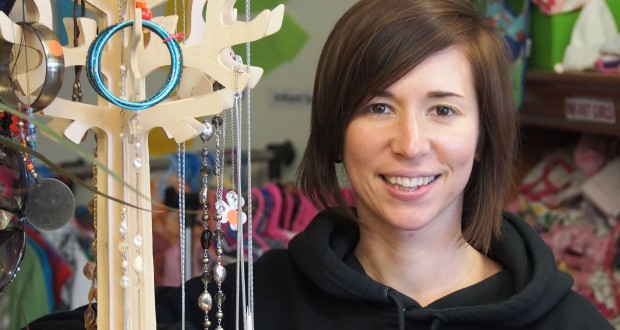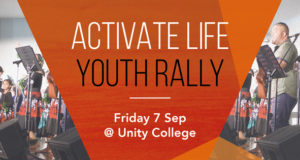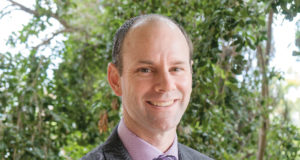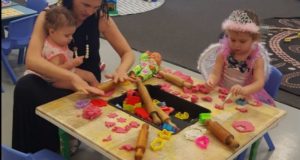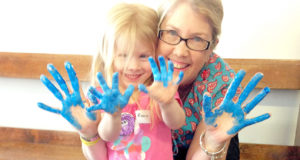Build the Future managing director Melanie Minichiello talks to Dianne Jensen about her passion for helping young people re-connect with society.
Gratitude. It’s as old-fashioned as a hand-written thank-you note, but youth advocate Melanie Minichiello says being grateful is a key ingredient in happiness and wellbeing.
“Gratitude allows us to look beyond ourselves and to gain perspective and balance,” says the managing director of the Build the Future youth development organisation in the outer Brisbane suburb of Keperra. Melanie is a former high school chaplain and youth pastor at the Uniting Church Samford Valley Community Church.
Her passion for helping young people discover their power to make choices was the catalyst for the innovative photo challenge My Grateful Story. Last year the 21-day online project attracted 150 high schoolers from Longreach to Weipa to take a daily photo of something for which they were grateful. The 2015 challenge was launched on 1 September.
“It’s easy for the difficulties and challenges that we face to be the only thing we see—and gratitude doesn’t pretend that that stuff isn’t there but it puts it back in perspective,” says Melanie. “I love that quote, ‘if you change your thoughts then you change the world’, and the biggest thing I try to help young people understand and take responsibility for is what they do have control over in their lives.”
My Grateful Story was a revelatory experience for participants as they delved deep into the humdrum of daily life.
“At the end they had to write a short paragraph … and a lot of them wrote, ‘I started doing this because I wanted to win one of the prizes but now I don’t care if I win because it has changed my perspective so much—I see life so differently’,” says Melanie.
An exhibition of the project was held at the end of last year at the State Library of Queensland creative space The Edge.
Making connections
Build the Future was started by Brisbane builder Peter Luckman in 2009 to provide a local base for working with at-risk young people. The foundation conducts school and after-school youth development programs and connects with the community through structured activities like yoga, boxing and the new Change Room community hub.
Melanie’s work also takes her out onto the local streets, connecting with kids like the 14-year-olds at the local skate park who have dropped out of school. Already enmeshed in the youth justice and family services system, these children exist on the fringes of society.
“For a 14-year-old, there’s no downside to going to the skate park all day and not going to school. And for someone that young, the options for alternative schooling are really limited,” says Melanie. “We have to work hard to be accepted, and to provide a good reason for them to go back to school or connect into some other program.”
Generation whatever
Melanie’s work as a pastor and school chaplain first opened her eyes to the confusion and sense of hopelessness felt by many young people who have become alienated from social institutions.
“The catalyst for me was understanding the youth suicide rate when we do have everything compared to a lot of countries. Although we are more connected than we’ve ever been and we have got technology that’s 24/7, actual connection and actual community—especially across generations—is where the breakdown is … the only place where people get community these days is either in sporting clubs, churches or youth groups like scouts.”
This social vacuum has made the influence of peers and social media even more pervasive, she adds. Faced with a plethora of choices and a lack of purpose, many young people simply disengage.
“We think lots of choices are good but research shows that it actually decreases our ability to make decisions and think long-term,” says Melanie. “A lot of young people just live in the present because it seems too overwhelming to plan for the future. If you don’t have a reason for the pain then you just won’t do it … so if you don’t have a reason why handing in this assignment is important, then you won’t do it.”
Safe spaces
Build the Future’s latest venture is a low-key community hub called the Change Room, based around a second-hand clothes store tucked away in a shopping strip in Keperra.
The welcoming shopfront includes comfortable seating and a children’s corner, and is staffed by volunteers from local churches including Melanie’s home congregation of Samford Valley Community Church.
“People can feel safe to come into that space and then if they want to start a conversation, if they want to seek help then they can take that step, but it’s not as confronting as if we were just a centre,” she explains. “We have an amazing group of volunteers and we give free clothing to people referred to us through support services such as homeless young people or refugees or young mothers heading for job interviews.
“What I love about working with young people is once you’ve built rapport they are so open to journeying with you; and once there’s trust they are so willing to be honest and to ask questions and to seek. They are really looking for people who will speak into their life and walk beside them.”
Salt in the world
The core values of her Christian faith are integral to Melanie’s commitment to young people in danger of quietly falling through the cracks of society.
“Christians are called to be salt in the world, and that’s what we are doing … helping young people to explore what love really is in the sense of how we believe it as Christians. I really do believe in those values—they are not just nice things—that love and courage are powerful things that make a powerful difference in someone’s life.”
For churches to play a role in these young people’s lives, they will need to accept the paradox that the current generation is both averse to commitment and in search of authentic relationships, she adds.
“It needs to be a faith community that allows for that sense of freedom to come and go … but the most important thing is consistency. With the breakdown in families and the pace of life young people just don’t have consistency in their life. So freedom and then relationship, and then they are looking for a genuine experience of God.
“Ultimately the most important thing we can do is to love, and use the language of love, because as always that’s the most revolutionary thing we can do in our society today and the most countercultural.”
For more information visit buildthefuture.org.au or call 0405 035 925.
 JourneyOnline
JourneyOnline
